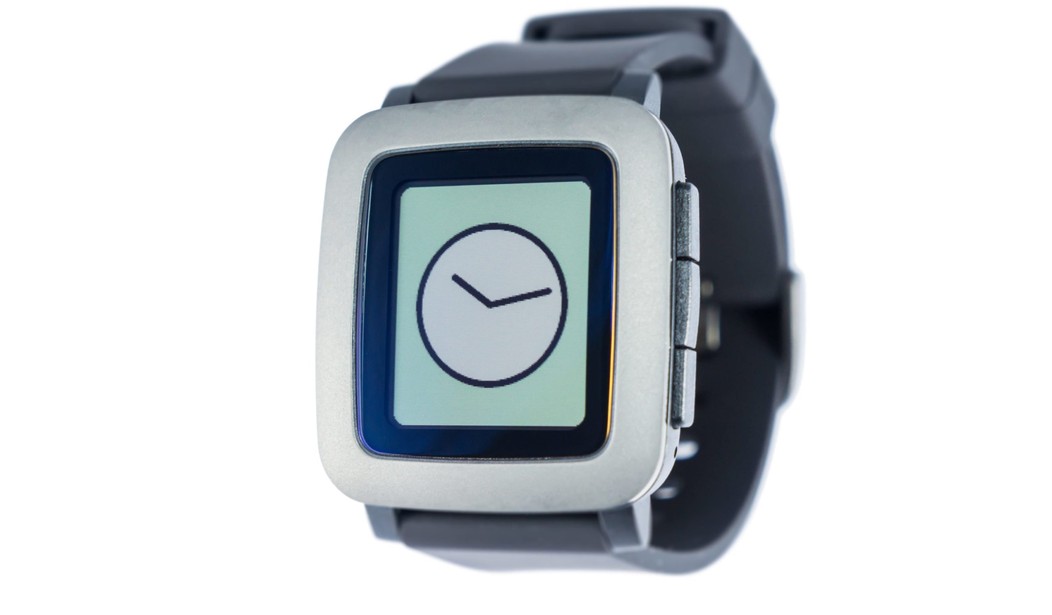Ouch:
CEO Eric Migicovsky attributed the planned layoffs to a slow environment for fundraising at Silicon Valley, despite Pebble raising $26 million over the previous eight months in addition to a $20 million crowdfunding campaign on Kickstarter that launched in February last year.
“We’ve definitely been careful this year as we plan our products,” Migicovsky said in an interview with Tech Insider. “We got this money, but money is pretty tight these days.”
The layoffs could reveal a trying time for the fledgling smartwatch industry as FitBit, the market leader in the wearable device category, has seen a dramatic dip in its stock over the recent months. Apple has also just recently lowered the base price of the Apple Watch Sport from $349 to $299, which could be in preparation for the launch of the next version of the smartwatch but could also mean the device is not selling as well as the company had hoped.
Pebble itself placed discounts on a pair of its more popular Time smartwatches, taking the price of the Pebble Time Round from $250 to $200 and the Pebble Time from $200 to $150, to keep the company’s offerings at a competitive price.
We’ll get to Pebble’s troubles in just a moment, but first a word on Apple’s Watch pricing because the author left out the third possibility.
If history is any guide, Apple’s price reduction on the Sport lineup was to be expected. The company prefers to enter a market at the high end, then cut prices while expanding the product line. Remember when the original iPhone was introduced at $500 with contract? After a few months, Cupertino knocked $200 off the price, then a further $100 when the second generation model was introduced. That was back when there was a single iPhone model in two SKUs. Now there are three iPhone models to choose from, each with multiple SKUs, and ranging in contract price from $0 all the way up to $500.
It isn’t a bad strategy — testing the waters to see what price early adopters are willing to pay for a limited selection, then broadening the selection while cutting prices. Apple has followed this pattern with every new product line, going back at least to 2001 and the original iPod. This year they’ll probably do it again with both the Watch and the tiny new MacBook.
Pebble on the other hand might be stuck in too small of a niche.
People looking for limited functionality and a low price seem to be gravitating towards Fitbit. That company first carved out its own niche in the fitness tracker market, and having developed a strong brand is now moving upwards in the marketplace and outwards in functionality. That’s not a bad place to be.
The profitable middle of the wearables market seems likely (at least for now) to follow the smartphone market, with Apple scooping up most of the profits and Android accounting for the bulk of the sales. There’s little reason for iPhone owners to buy an Android watch, and there’s even less reason for Android phone owners to buy an Apple Watch. So Android/iOS users will stay within their familiar ecosystems, and Fitbit should continue to do well with its core audience of fitness buffs.
But Pebble?
The company has been moving up-market, but frankly their materials and (especially) their screens just aren’t up to the competition’s standards. Pebble’s key selling feature seems to be that the battery lasts all week, but that’s really not much of a feature for most watch wearers. How often does anyone leave their watch on for days at a time, even an old-school Casio digital watch with a battery that lasts for years? Most people take their watches off at night, making daily charging no big deal. And folks who need sleep tracking are probably already wearing a Fitbit at night — even if they also own an Apple Watch or a Galaxy Gear*. My wife for example, was given a Fitbit by her employer years ago, to track health-based cash bonuses. She also has an Apple Watch. If we were Android users, she’d probably have the Fitbit and one of Samsung or Motorola’s watches.
It’s not that Pebble makes a bad product — far from it. But they don’t enjoy the huge ecosystem advantages of Android or iOS, and they don’t have the corporate/fitness appeal that Fitbit enjoys.
Migicovsky says money is tight, but the tough times might just be getting started.
—
*Two Android-owning friends who didn’t seem to think much of my Apple Watch last year, are now both very happy & proud owners of Android watches — even though functionally they’re almost exactly the same. The Age of Wearables is here!










Join the conversation as a VIP Member